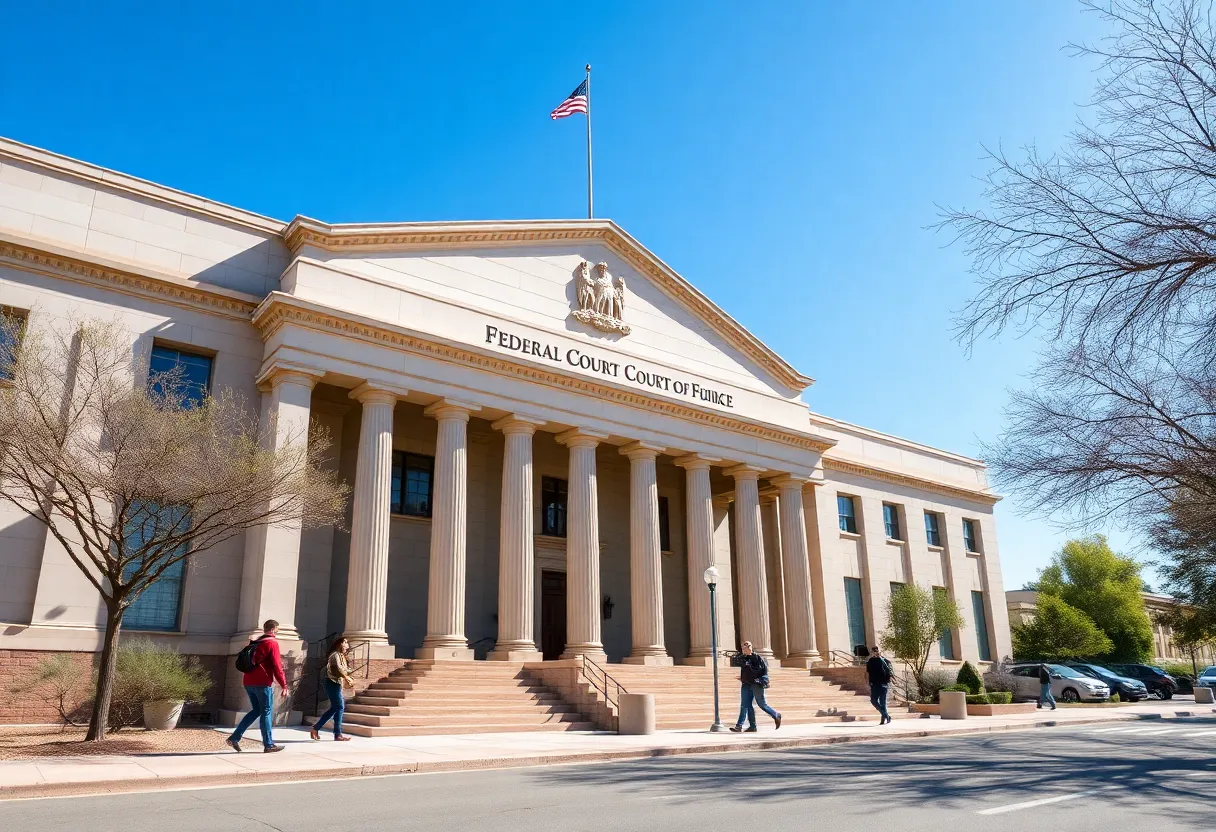Tucson, October 15, 2025
A federal judge in Tucson has dismissed a legal challenge to Arizona’s border security law, enabling state involvement in immigration enforcement to continue. The ruling supports key provisions of the law, which permits state law enforcement to assist federal agencies in investigating immigration violations. Both supporters and opponents of the law are voicing strong reactions, with appeals anticipated shortly. The case highlights ongoing tensions between state and federal jurisdictions in immigration policy.
Tucson Judge Rejects Challenge to Arizona’s Border Security Law
Tucson, AZ – A federal judge in Tucson has rejected a legal challenge aimed at voiding Arizona’s controversial border security law, allowing the state to continue its involvement in immigration enforcement. This ruling upholds key provisions that have been at the center of heated discussions across the state.
Key Details of the Ruling
The decision was issued today in a Tucson federal court, where the judge determined that the challenge did not meet the legal threshold to invalidate the law. The border security law includes measures that permit state law enforcement to assist in federal immigration duties, such as identifying and detaining individuals suspected of immigration violations. This ruling maintains the law’s current framework, which has been operational for several years and involves coordination between state and federal authorities along Arizona’s southern border.
Legal experts note that the case centered on arguments about federal supremacy in immigration matters, with challengers claiming the law encroaches on exclusive federal jurisdiction. However, the judge found the provisions sufficiently aligned with existing federal statutes, preserving Arizona’s ability to enforce border-related aspects of immigration policy.
Reactions and Implications
The ruling has ignited immediate responses from various stakeholders. Supporters of the law argue that it strengthens security measures in a border state prone to cross-border activities, emphasizing the need for state-level action to complement federal efforts. They view the decision as a validation of Arizona’s right to protect its communities and resources.
On the other side, opponents contend that the law represents an unlawful overreach by the state into federal territory, potentially leading to discriminatory practices and strained relations with immigrant communities. Advocacy groups have expressed concern that upholding the law could exacerbate tensions and legal uncertainties for residents and visitors alike.
As the news spreads, statewide debates are intensifying, with discussions focusing on how this decision impacts daily enforcement practices, community trust, and broader immigration policy. Political figures from both parties are weighing in, highlighting the law’s role in Arizona’s ongoing border management strategy.
Background on Arizona’s Border Security Law
Arizona’s border security law was enacted several years ago amid rising concerns over border crossings and related security issues. The legislation empowers state officers to check immigration status during routine stops if there’s reasonable suspicion of a violation, a provision that echoes earlier laws like SB 1070 but with refined elements to address past court challenges.
Past iterations of similar laws in Arizona have faced scrutiny from the U.S. Supreme Court and lower federal courts, leading to partial invalidations. This particular challenge sought to overturn remaining sections, arguing they still interfere with federal authority. The Tucson’s court’s rejection means these provisions remain in effect, continuing to shape how Arizona addresses immigration at the state level.
The law operates within a complex landscape where Arizona’s proximity to Mexico makes border security a perennial priority. State officials have invested in training programs and technology to support enforcement, while federal agencies like Customs and Border Protection maintain primary oversight. This ruling reinforces the collaborative, albeit contentious, dynamic between state and federal entities.
Expected Next Steps
Appeals are anticipated soon following this decision. Challengers are likely to escalate the case to higher courts, potentially reaching the Ninth Circuit Court of Appeals and even the U.S. Supreme Court. Such proceedings could take months or years, during which the law remains enforceable.
In the interim, Arizona law enforcement agencies will proceed with existing protocols, monitoring for any shifts in federal policy or guidance. Community organizations are preparing resources to inform residents about their rights under the law, aiming to mitigate potential impacts on vulnerable populations.
This development underscores the enduring debate over immigration enforcement in the United States, particularly in border states like Arizona. As legal battles continue, the focus remains on balancing security needs with constitutional protections, ensuring that state actions align with national standards.
FAQ
What was the outcome of the legal challenge in Tucson?
A federal judge in Tucson has rejected a legal challenge aimed at voiding Arizona’s controversial border security law.
What does the border security law allow?
The law allows Arizona to continue its involvement in immigration enforcement, including provisions for state law enforcement to assist in federal immigration duties.
How has the ruling been received?
The ruling has sparked debates statewide, with supporters praising enhanced security and opponents decrying overreach.
What happens next after the ruling?
Appeals are expected soon.
Key Features of Arizona’s Border Security Law
| Feature | Description |
|---|---|
| State Involvement in Immigration | Allows state law enforcement to assist in federal immigration duties, such as identifying and detaining suspects. |
| Immigration Status Checks | Permits checks during routine stops if reasonable suspicion of violation exists. |
| Coordination with Federal Agencies | Supports collaboration with entities like Customs and Border Protection. |
| Legal Status | Uphheld by Tucson federal court; appeals expected. |
Deeper Dive: News & Info About This Topic
HERE Resources
Pima County Sheriff’s Department Chief Deputy Resigns Amid Pay Probe
Tucson Mayor Announces Shift in Police Policy to Combat Rising Crime
Shelter-in-Place Order at Pima Community College Concludes Safely
Tucson Golf Expo Draws Record Crowd with Gear Demos and Winter Packages
Tucson School Bus Assault Incident Sparks Investigation
Tucson Police Investigate Threat at Local High Schools
Tucson Court Clears Misdemeanors for 200 Residents
PCC Student Detained in Bathroom Privacy Incident
Tucson Launches Safe City Initiative to Address Crime
Innovate AZ Launches to Boost Tucson’s Renewable Energy Sector




